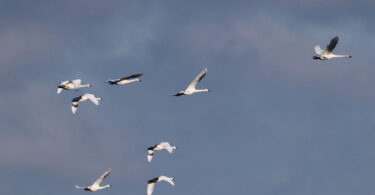As duck hunting season ramps up across the state, officials with the N.C. Wildlife Resources Commission urged waterfowl hunters to practice safety and to share best practices with someone new to the sport, especially when hunting from a vessel. Remember, of the 23 people who died boating on the water in 2021, 16 were not wearing a life vest.
“Boating incidents can occur in a split second, so it’s important to be prepared,” said Chase Luker, engagement specialist with Wildlife Commission’s Education Division. “Hunters using a vessel should always wear a personal floatation device, even before getting in the boat. Also, dress appropriately. Clothing made of wool or other synthetic materials, rather than cotton, helps prevent hypothermia.”
When on the water, it’s imperative that hunters who use a boat follow all boating regulations and consider bringing a Personal Locator Beacon and reliable Very High Frequency (VHF) marine radio. In addition, navigational lights should be kept in good operating condition. Additional recommends for waterfowl hunters include:
• Alert someone to your whereabouts and an approximate return time.
• Understand that small, flat-bottom vessels are prone to capsizing and swamping.
• Stay with the boat and use it as a floatation device if it capsizes or swamps.
• Keep hunting dogs in the center of your boat.
• Don’t overload the boat, especially with passengers.
• Store equipment properly and keep it evenly distributed.
• Never move about the boat with a loaded shotgun.
Safely handling waterfowl carcasses is key this season as well, as avian influenza has infected wild birds in North Carolina (CSN Nov 2022). State health officials with the NC Department of Health and Human Services recommend:
• Refrain from harvesting or handling wild birds that are obviously sick.
• Dress game birds in the field whenever possible, and wear disposable gloves.
• Wash your hands with soap and water after handling game or use an alcohol-based sanitizer if soap and water are not available.






